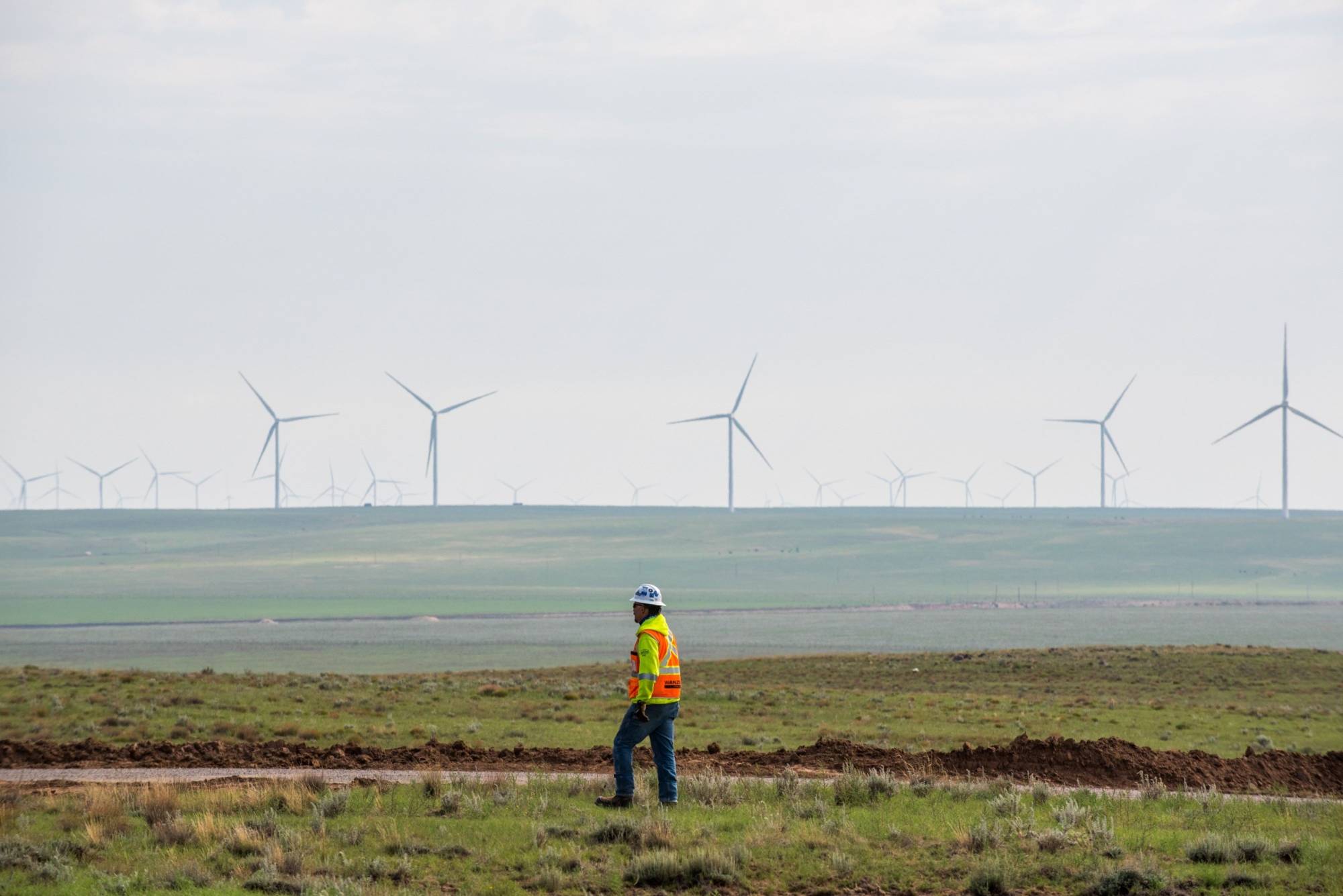Alfred Burt grew up following his father across the oil patches of Texas. He carried on the family tradition, working on rigs for 26 years until the pandemic crashed oil prices in April and he lost a drilling job with Apache Corp. that paid $1,600 a day.
He wasn’t sure what was next for him when he got a message from a recruiter with Workrise, a staffing company. The scout wanted to know if the 46-year-old would consider a job in wind. Burt told him, "No problem, I’d work at anything if it pays.” He now spends his days running lines to raise or lower turbine blades, earning $20 an hour, or about as much in a month as he used to make in two days in the Permian Basin.
Like Burt, Workrise used to be in the oil and gas business, but it’s recently been moving more and more workers into renewable energy. Last year, almost 120,000 fossil fuel jobs were eliminated, making the reasons for the company’s pivot clear. But Burt’s new job and his pay cut illustrate the challenges of the energy transition sweeping the world and the difficulties of finding good new jobs for laid-off roughnecks.

















With your current subscription plan you can comment on stories. However, before writing your first comment, please create a display name in the Profile section of your subscriber account page.